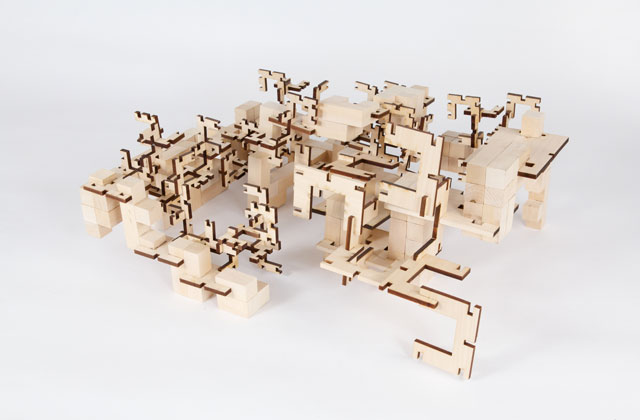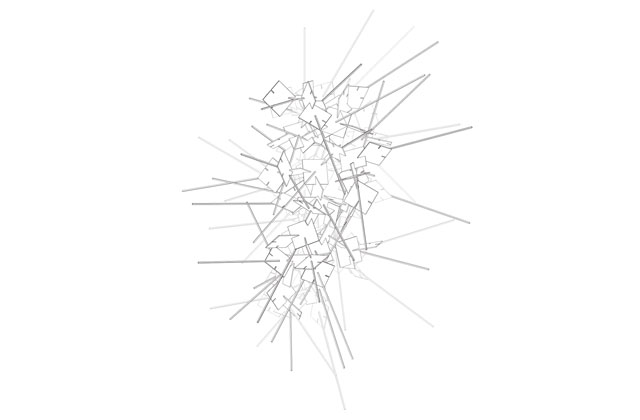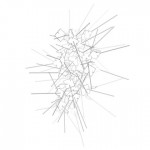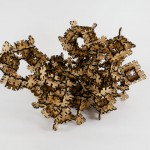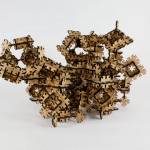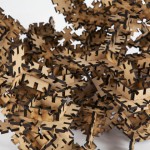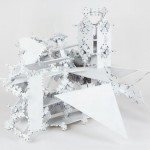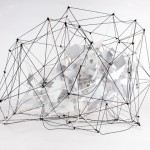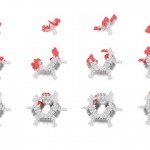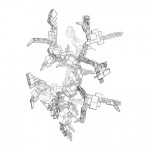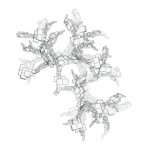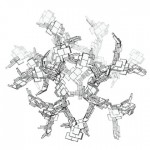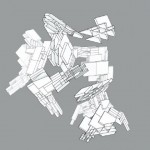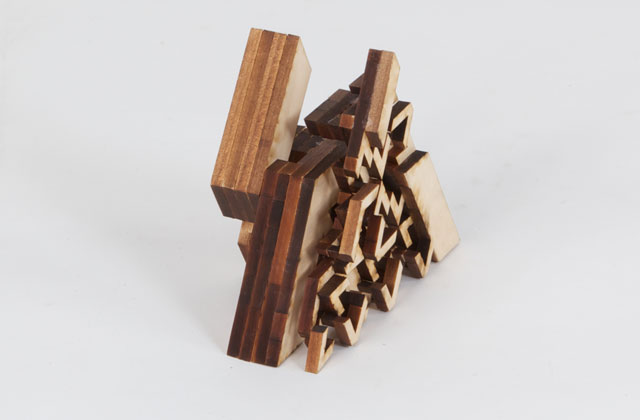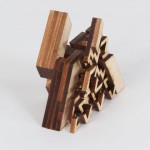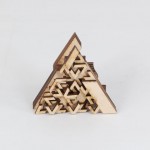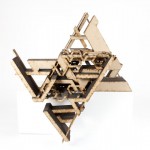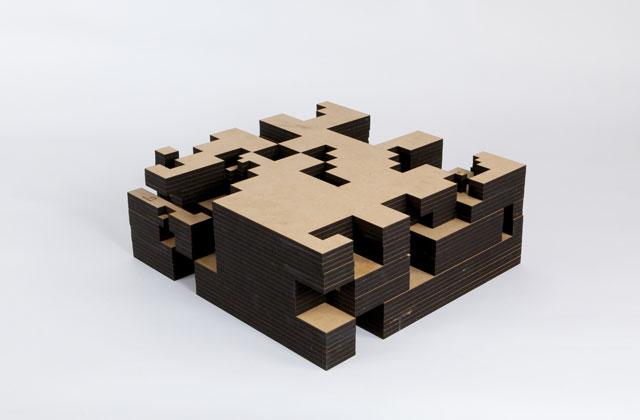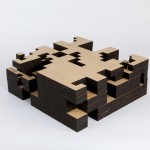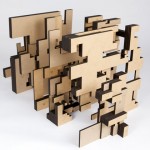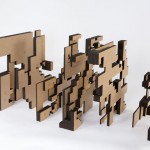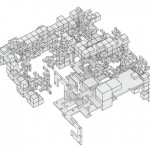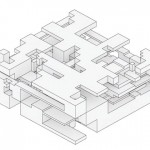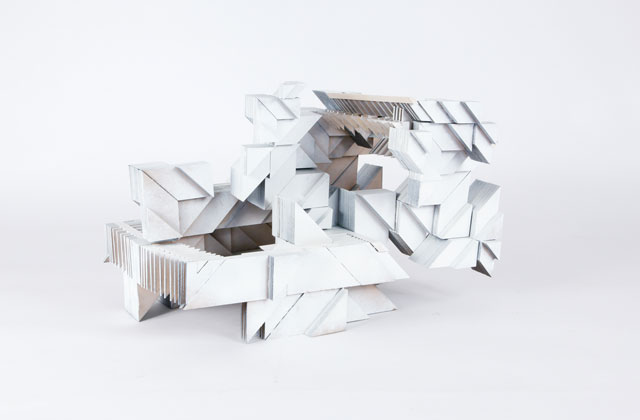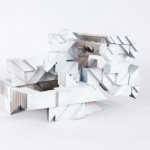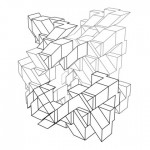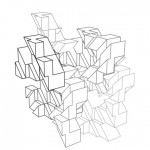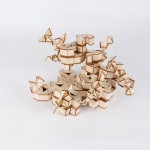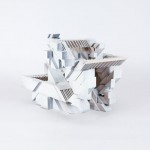2010F_Design Studio_Blasetti Section
ARCH-2200 | Ezio Blasetti, Adjunct Professor
The Knotted Construct
Selected Student Work:
Kelly Nicholson
Brooke Van Bausch
“Fall 2010 commenced with an unusual assignment: students were paired at random and asked to design a structure that would physically link them for eight hours, during which they were to conduct daily activities. Occupants were to be kept no further apart than 6 feet at all times. Whilst occupying the device, the makers were prohibited from speaking with each other. In addition, during the weekend long design and fabrication process, they were not allowed to write to each other, and could only communicate via movement or drawing. Performance artists Hsieh and Montano were studied, along with Phillipe Petit’s philosophical treatise “On the High Wire”.
With a nod toward to chrono-photographic studies of Eadweard Muybridge and Étienne-Jules Marey, the next exercise was a series of experiments and documentations in photography and video incorporating a set of sticks and knotted constructions. The students produced diagrammatic drawings and time-based analysis of their new constructions. The physical operations of the knot were studied to reveal both representations and abstractions of these inherently temporal, and dynamically complex architectures. Each team’s investigations were later translated into site work – figure/ground situations suggesting programs of occupation. Physical models, hand drawings and collages were utilized to map the conceptual territory of the knot.
With an emphasis on corporeal experience, collaboration and critical dialogue, the first year studio’s five sections shared the aforementioned conditions as points of departure. However, each section leader brought his or her students into contact with subjects as diverse as the history of cinema, parametric modeling, performance art, cubism, futurism, mathematics, optics and physics.
Of primary importance in an architects’ training is a deepening of one’s understanding of the limitations and territories of the body. The development of significant manual skills in drawing, diagramming and developing contextual models is paralleled by tools in the digital realm. All of these modes of inquiry and representation are furthered by the requirement of producing boards and making public presentations. The use of photography – not merely as a documentary tool, but as a generative operation – is also emphasized.
But it may be in the students’ ability to iterate, and invent new methods of inquiry that this curriculum finds its most profound expression. The springboard from which each student launches herself into the discipline, First Year is also a leap into the unknown, where one must quickly shed the routines of secondary school education and embrace the role of the voyager who seeks multiple destinations.”
-Michael Oatman + Anthony Titus, Co-coordinators
